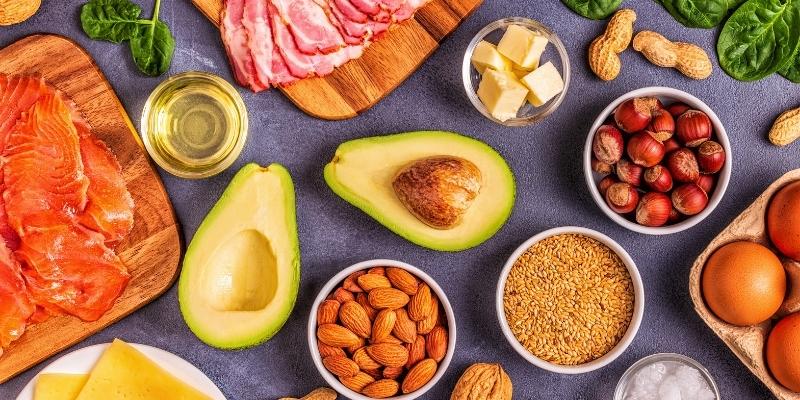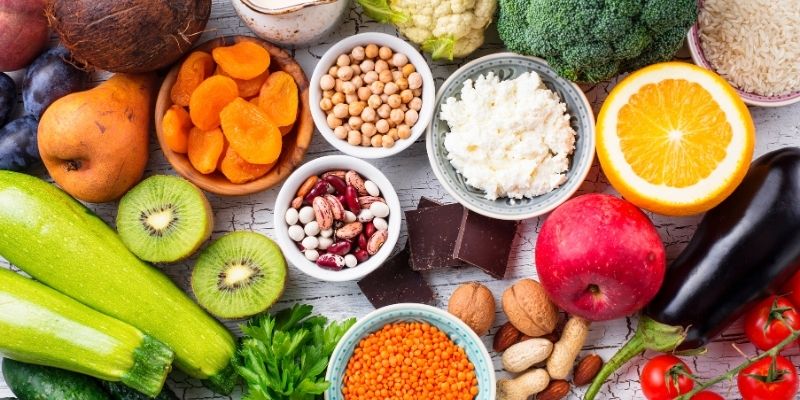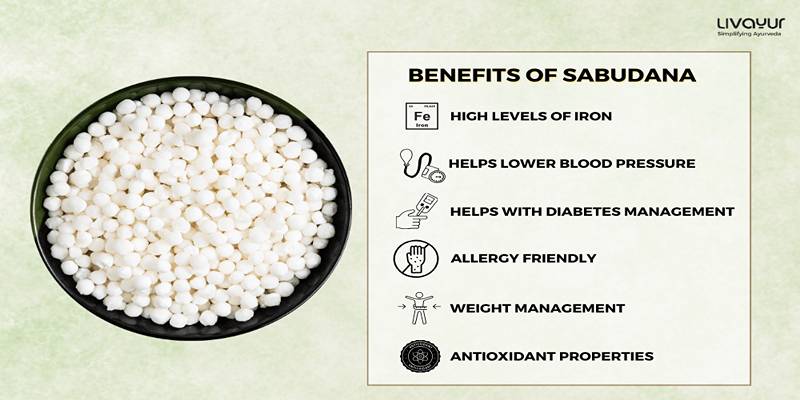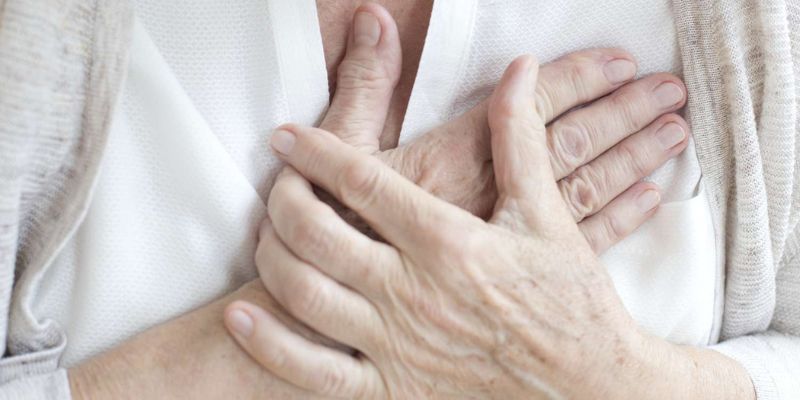Eating healthy is important. But eating light is sometimes more beneficial than eating high-calorie, heavy meals all the time. Sometimes, when you are struggling with metabolic issues or having a hard time digesting food, then you may need to switch to a low-residue diet to get your metabolism back on track. Low residue diet is easy to digest and light on your stomach as it excludes tough-to-digest foods such as fiber-rich food and hard food like nuts etc.
What Is a Low-Residue Diet?
A low-residue diet includes low-fiber foods that are easy to digest. It is mostly recommended by doctors when you have an inflammatory bowel disease like Crohn's disease or ulcerative colitis. It means that you need to eat food that is easy to digest like peeled fruits, veggies, bread, and white rice, and cut back on high-fiber food that is hard to digest such as whole grain bread, raw vegetables, and nuts, etc.
A low-residue diet is low in fat and fiber. So, milk and milk products should be avoided in diarrhea or if someone is lactose intolerant. Nutritional supplements can be taken with the doctors advice. Who needs to follow the low-residue diet?
Mostly, you will be prescribed a low-residue diet in the following scenarios:
- To speed colon healing
- To prepare for a colonoscopy
- If you have diverticulitis
- For the treatment of ulcerative colitis or Crohn's flare-up
A low-residue diet restricts fiber and other nutrients to decrease stool volume. As a result, there are fewer and smaller bowel movements, which may alleviate the symptoms of inflammatory bowel illnesses such as cramping, gas production, bloating, and abdominal pain.
A low-residue diet may also be recommended to prepare for medical treatment or surgery, so you can eat instead of only drinking liquids. According to research, if you follow a low-residue diet, you will be able to tolerate the surgery better, such as a caesarian or colonoscopy. However, more research is required to support this theory.
Low-Residue Foods:
If you are prescribed a low-residue diet, heres what you can start with:
- Grains: White bread, plain crackers, rolls, biscuits, etc
- Fruits and vegetables: Fruits and vegetables should not be eaten raw when you are prescribed low-residue foods. The skin and peel of fruits and vegetables contain the most fiber, so avoid them. Fresh-cooked or canned vegetables without seeds, like mushrooms, spinach, carrots, green beans, etc., are recommended.
For fruits, ripe bananas, pumpkins, avocados, and canned fruits are good for you without seeds.
- Fats and sauces: Margarine, butter, sour cream, soya sauce, clear jelly, mayonnaise, and ketchup are also part of a low-residue diet.
- Sweets and cakes: You can also satisfy your sweet tooth by eating plain cake, ice cream, jelly, plain pudding, cookies, and vanilla wafers.
- Beverages: De-caffeinated coffee, tea, fruit juice without seeds, and strained vegetable juice are also fine.
Refined cereals like cornflakes and cream of wheat, plain pasta, and noodles are also good to go. You can also take a moderate quantity of milk or milk products, but they can also cause cramps or diarrhea if you are lactose intolerant.
Low-Residue Meal Ideas; Whats on The Menu?
Low-residue foods arent limited if you are worried about variety. Here are a few low-residue meal idea so you can have options for breakfast, lunch and dinner:
Breakfast:
For breakfast, you can have:
Make scrambled eggs
French toast or pancake with butter
Fresh juice without pulp or seed,
Decaffeinated coffee with milk and sugar
Lunch:

For lunch, you can try:
Cooked carrots with chicken breast baked
Cheeseburger with onion, lettuce, and ketchup, and a bun with no seeds
French bread chicken or turkey sandwich
Dinner:
Several options for low-residue dinners are:
Plain rice, steamed vegetables, and baked chicken
Baked potato without skin, sour cream and butter
Noodles, pasta, or broiled fish
Now you see that low-residue meal isnt too limited. You can improve your digestive health diet while eating the food that satisfies your cravings.
When you are prescribed a low-residue diet, you should start noting down what to eat and what not to. It can help you figure out what suits you the best and what you should avoid. If you are not prescribed a low-residue diet by a doctor or a nutritionist, its not a great idea to continue eating low-residue foods for a long time because they lack essential nutrients and fiber. If you want a healthy diet plan, then you need to seek help from a professional nutritionist.
Foods To Avoid:

A dietician or a doctor can advise better about the foods you should avoid on a low-residue diet, but heres the general idea of what you should avoid:
Nuts
Raw fruits and vegetables
Whole grains
Dry fruits
Spicy foods
Popcorns
Chocolate
Caffeine
Low-Residue Diet for Colonoscopy:
If you are prepping for a procedure like a colonoscopy then the doctor may prescribe you a low-residue diet. The general recommendation is to start a low-residue diet 3 days before the procedure. A low-residue diet to follow before surgery or a procedure may include:
Bread, cereals, pasta, etc (something that has less than 0.5 gm fiber is recommended)
Protein like grounded beef, turkey, or chicken
Raw fruits including fully ripe apricots, bananas, avocados, and peach
Dairy products like milk, cheese, and yogurt but its a No-No if you are lactose intolerant
Snacks like plain crackers and clear jelly
Oil, butter, fats like mayonnaise, olive oil and ketchup
Furthermore, your doctor will guide you on when to start clear liquid, mostly its one day before the procedure.
Bottom Line:
Even if you are healthy, taking care of your digestive health diet is good to avoid severe stomach conditions. Low-residue diets are recommended mostly before a medical procedure. When the doctor recommends a low-residue meal, make sure you eat low-fiber foods such as plain white rice, plain bread, pasta, cheese, meat, and all well-cooked food, without peel or seeds. Before starting the low-residue diet, consult your physician because it lacks some essential nutrients and could be dangerous if followed for an extended period.




